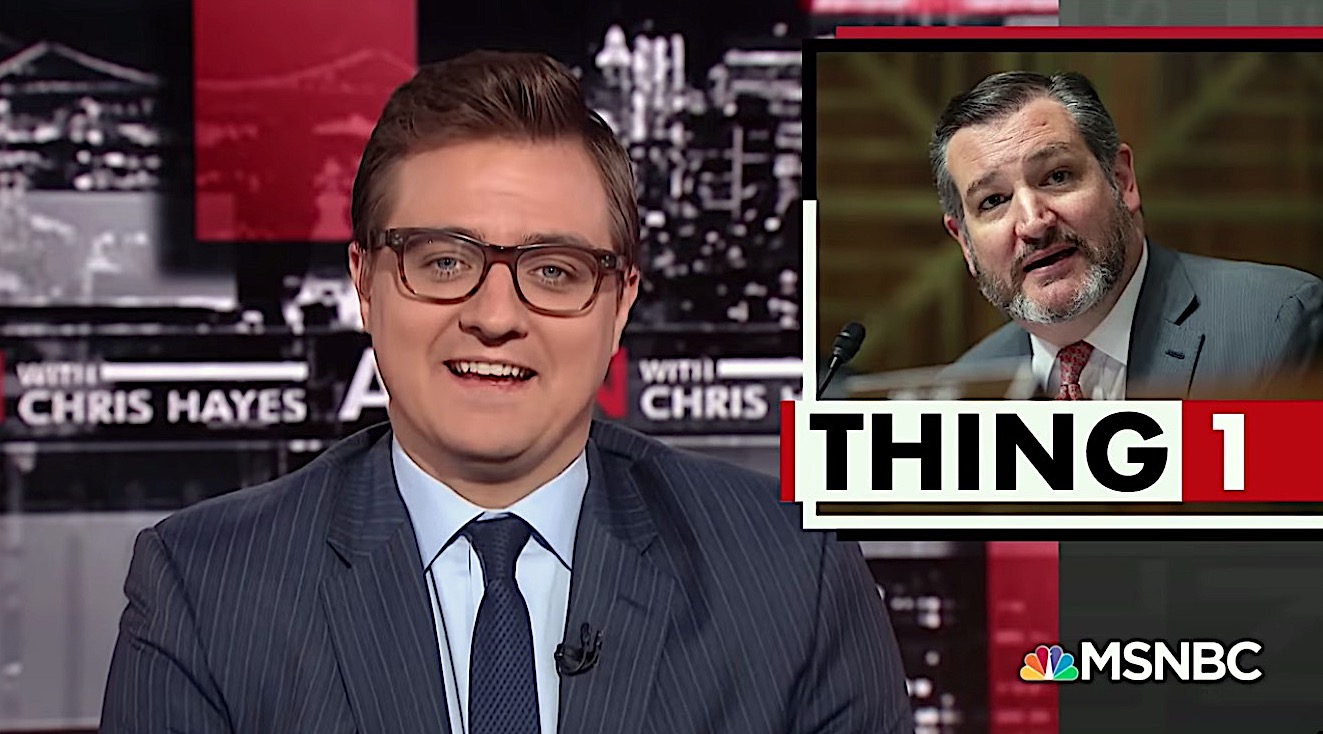MSNBC's Chris Hayes explains why Sen. Ted Cruz wants space pirates to devour his liver


A free daily email with the biggest news stories of the day – and the best features from TheWeek.com
You are now subscribed
Your newsletter sign-up was successful
Space cowboys may sing of the pompatus of love, but space pirates will earn you ridicule. At least if you're a U.S. senator, and you're serious.
On Thursday night's All In, MSNBC's Chris Hayes played a clip of Sen. Ted Cruz (R-Texas) earnestly pitching President Trump's Space Force as a bulwark against space pirates. "We had a little bit of fun with that moment last night, as did, like, all of the internet," Hayes said. "But that wasn't the reason Sen. Ted Cruz wished me death by imaginary space pirate." At least not directly.
"Cruz had a rough day on Twitter and cable news yesterday, after his 'space pirate' speech went viral," so he hit back at NBC's Chuck Todd and then he went "full space snowflake, complaining to the CEO of Twitter about all the dunking on him," Hayes said. He saw that tweet "and I thought it was the saddest tweet I'd ever seen," Hayes explained, "so I commented 'This is the saddest tweet I've ever seen.' And that is when Sen. Ted Cruz told me, 'May Space Pirates devour your liver.'" Presumably, Cruz was getting in on the joke. But you never know. You can decide for yourself below. Peter Weber
The Week
Escape your echo chamber. Get the facts behind the news, plus analysis from multiple perspectives.

Sign up for The Week's Free Newsletters
From our morning news briefing to a weekly Good News Newsletter, get the best of The Week delivered directly to your inbox.
From our morning news briefing to a weekly Good News Newsletter, get the best of The Week delivered directly to your inbox.

A free daily email with the biggest news stories of the day – and the best features from TheWeek.com
Peter has worked as a news and culture writer and editor at The Week since the site's launch in 2008. He covers politics, world affairs, religion and cultural currents. His journalism career began as a copy editor at a financial newswire and has included editorial positions at The New York Times Magazine, Facts on File, and Oregon State University.
